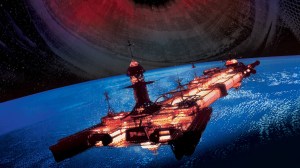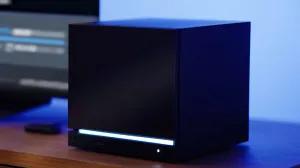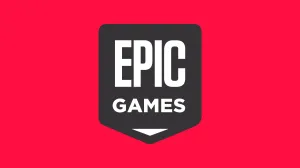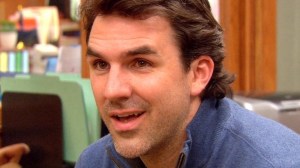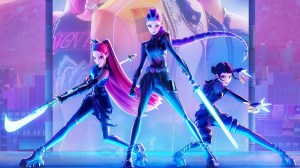Fans first immersed themselves in the world of Stephen King‘s fictional Maine town with the debut season of Castle Rock last year, exploring a variety of mysteries unfolding in the community as King characters were woven in and out of the narrative. For Season Two, co-creator Dustin Thomason took a slightly different approach, putting some of King’s most memorable characters and settings at the forefront to deliver audiences an all-new experience. With the series taking an anthology route, viewers can jump into this new season without seeing the first to witness an emotional and layered exploration of a King character whose complexity was previously left unexplored.
Videos by ComicBook.com
In the new season, a feud between warring clans comes to a boil when budding psychopath Annie Wilkes (Lizzy Caplan), Stephen King’s nurse from hell, gets waylaid in Castle Rock.
ComicBook.com recently caught up with Thomason to discuss the original development of the series, how he upped the stakes for Season Two, and the key to capturing King.

ComicBook.com: The first season borrowed a number of elements from King stories, yet it mostly focused on all-new characters as recognizable references were featured on the outskirts. Was there a time when this show was being developed without the King connection and you were then able to incorporate elements from his library?
Dustin Thomason: It starts and ends with Stephen. There was never a version of Castle Rock that was ever going to be done as pure homage. Certainly, Stranger Things does an amazing creation of something that is drawing from those elements without being directly from it. I think that we were excited to really explore these corners. And as fans of Stephen and of his books, I think part of what really motivated it was the idea of all the interconnections in the universe that existed already. It was really, at some level, the fact that we had started as readers and as lovers of the little Easter egg ways of structuring his own universe that Stephen created, beginning 50 years ago, that felt exciting to us. Without Stephen and without [producer] J.J. [Abrams], there would be no Castle Rock.
This comes from the first season featuring an effective storyline on its own that didn’t require a familiarity with King and is only made that much better with those connections to his works.
The first season is sort of — it’s almost a little Stephen King adjacent, in that we have [The Dark Half character Alan] Pangborn, and we have Shawshank, and we have Castle Rock. But it’s not like it runs right into the heart of the eye of the stories and of the characters, and obviously this season really does.
Part of what we were excited to do, honestly, was to have a show that was a big enough tent that one season, you could have something that felt more like a totally original song in the key of Stephen King, brushing up against his elements. Then, sometimes, fill in the margins that felt like an exciting piece of side-story that you never got to see in the book. It really was, from the concept phase, imagined in that way where we would have that leeway. Hopefully part of the exciting thing about each new season, as an anthology, would be that you wouldn’t ever know exactly what to expect, kind of like Stephen’s books.
Was that decision for Season Two a reaction to the first season or the learning process of making it?
No, truly it was baked in from the beginning. I think that there were a lot of conversations. [Co-creator] Sam [Shaw] and I had a lot of talks with J.J., and with [producer] Ben Stephenson about how we were going to, each season, change up the way that we were using the stories and the characters so it would have this unexpected quality to it. But it wasn’t like Season Two was a reaction to Season One. It was honestly more baked into the original idea.
Both seasons, which you shot in Massachusetts, really capture the small-town feel of a secluded community.
I think shooting in New England was a big part of that. There’s a very New England sensibility to the way that we’ve shot the show. I think that that was always baked into the idea, too, which is that if we were going to try to do a Stephen King show with authenticity, for this show, we were going to really push to shoot in New England so that it really could at least feel close to the Maine that we all knew and loved from his books.
Other than the location, were there other specific elements of King that, when developing the show, you would always lean on to capture that spirit?
The way that Stephen has redefined horror as a genre over the last 50 years has been by really leading with character. At some level, I think what’s important to Castle Rock, of course there will be thrills and there will be horror and there will be moments of visceral tension, but at its core, it’s a character story. I think that, for us, was always really important, that we would be able to create characters and episodes where emotionally you felt connected to them in the same way that you do to Stephen’s characters. That sympathetic fear, that you could only really be afraid for someone if you care about them. So, at some level, that was the motto of the show, was that in the same way that Stephen gives us these kinds of Dickensian characters and then throws them into crazy horror and thriller situations, that that was always what we were going to be doing in this show.
If you look at the way that Sissy Spacek’s character was treated last year and her struggles with dementia, and the way that that kind of real-world horror translated into an actual horror story, the same is true this season in that Annie is struggling with her own mental illness and her own demons and trying to be the best version of herself that she can be. I think it’s that almost hopeful quality of Annie’s, and the love she has for her daughter, that makes us care about her even as we watch her both be terrorized and then eventually become terrorizer. It’s a cliche but I embrace it, because it is a cliche that I think Stephen helped invent in the genre, which is that characters matter more than scares and that the scares will come when the characters feel robust.
Speaking of Sissy Spacek and her role in the series, the Season One episode focusing on her dementia and how her relationship with Alan Pangborn developed was particularly moving, especially the final scene.
That episode was a labor of love for Sam and Greg Yaitanes, who beautifully directed that scene in that episode. The amazing talent Greg brought to that was part of the big reason that I wanted him to direct episode one this year, and he was our producing director along the way, and really helped guide this entire season all the way up to a little Easter egg I can give you. A big Tim Robbins-centric episode that comes very late in the season that Greg also directed, that turned out just beautifully, and really, I think, has some of the same elements as that episode of Sissy’s last year.
Speaking of Easter eggs, since there are a number of references you were able to get into the episode, were there any that you wanted to incorporate this season but just couldn’t incorporate organically?
I’ll talk about it vis-a-vis Annie. When you read the book, she’s such a lover of pop culture and a lot of it is antiquated pop culture, from the old serials to Liberace to her weird obsession with Paris. There’s so many little details that Stephen gave us about Annie. All of the writers, all season long, we were constantly trying to figure out how to honor that collection of Annie-isms and her various little obsessions. Paul Sheldon, most of all, and notwithstanding, but how to embrace what Stephen had given us about who Annie was, without overcooking every scene with a pop culture reference to something that Annie was obsessed with. I think that would be one thing this season that was a very delicate thing to manage.
*****
Season Two of Castle Rock debuts on Hulu on October 23rd.




